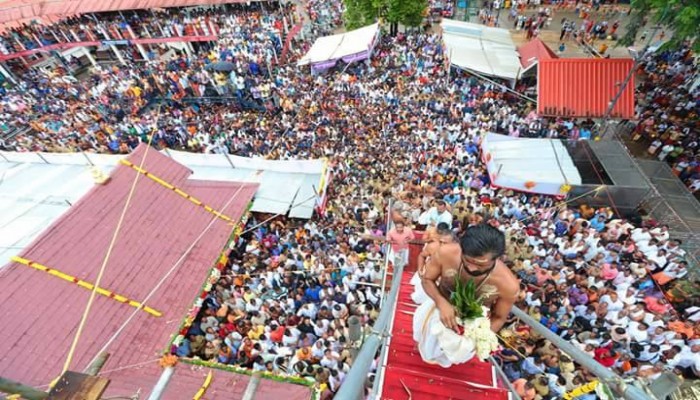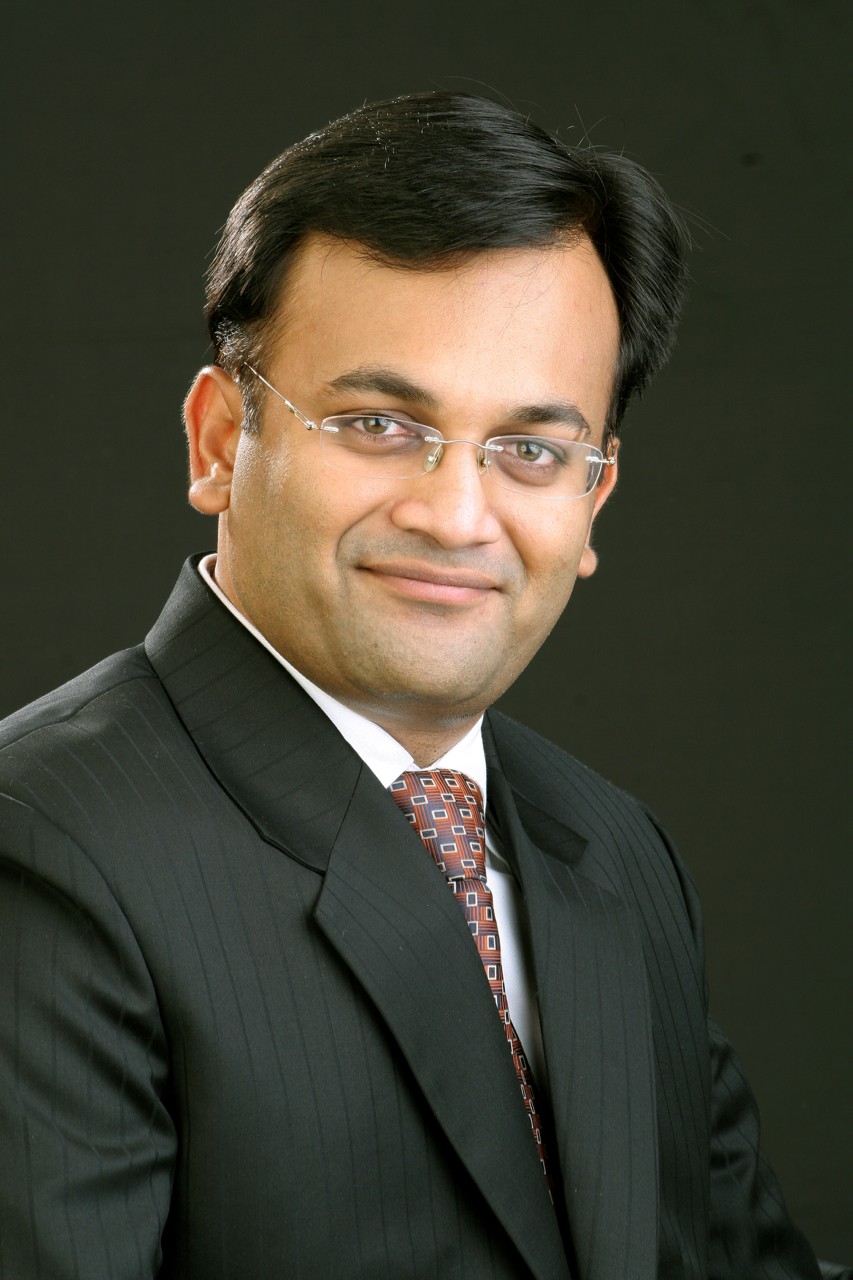PIL to stop worship of all Male Deities filed - to end Patriarchy & Gender Discrimination!
- In Current Affairs
- 03:02 AM, Oct 05, 2018
- Ashish Naredi
The landmark judgment delivered by the Supreme Court in the Sabarimala case is a subject of a great national debate today. However, another case with even more far reaching implications has remained totally out of public scrutiny.
Not many may know but the petitioners in the Sabarimala case, the Young Lawyers Association of India had earlier wanted to withdraw the petition after its President Mr. Naushad Ahmed Khan was threatened with dire consequences by some fanatic right wing, Hindu groups. The Supreme Court, however, rightly refused permission to withdraw the case and ordered security for Mr. Khan. Fearing similar threats to the petitioners in another PIL on gender equality, filed by the SHUN Lawyers Association of India, the Supreme Court ordered “in-camera” proceedings, just like it had done in the case of Asifa. Hence, there has been no reporting on it in the media, thus far.
We have learned from ‘reliable sources’ that not only is the hearing in this case now complete, but the final judgment is also ready to be delivered. Given the massive implications of the case, we are taking the risk of sharing the case and judgment details in the larger public interest while hoping that the Hon’ble Supreme Court will excuse our intransigence in the interest of protecting “Freedom of Speech and expression.”
It has been learnt that the SHUN Lawyers Association has presented a research paper (published in the world-renowned National Scoops Journal of India by the Young Social Scientists of India) which traces all forms of inequality and gender discrimination in India to the highly abhorring, discriminatory and primitive practice of worshipping the male deity in temples! Hence, on the basis of these findings, the petitioners have pleaded for an immediate ban on the worship of Male deities and closure of all their temples!
The case was heard by a three-judge bench of the Supreme Court. The government on its part maintained a neutral stance and said that it would abide with whatever directions the Supreme Court might give. The only real opposition to the petitioners came from a little-known organization called P4D (People for the Damned) and their dynamic Counsel K Sai Arjun. Arjun presented a strong counter highlighting the fact that, in this land of Dharma, there are far more temples dedicated to the women deities than there to men deities. “Given this fact, if at all worshiping of a deity were to lead to discrimination then we would have had discrimination against men in India and not against women,” argued Arjun. He also pointed out to existence of some Devi, Mata or Amman temple in each and every village, town and city of India to show that there are more Devi temples than the Devata temples.
Justice S. Shivam Sundaram, however, dismissed Arjun’s contentions as “WhatAboutery” devoid of any scientific rigor or rationale. He said that the principles of ‘constitutional morality’ demanded that all forms of discrimination needed to go, irrespective of who they were sought to be imposed upon – the worshippers or the worshipped, the devotees or the deities! Hence, “it is befitting that India takes this next logical step towards liberation from gender discrimination, by ending the practice of worshipping the Male Deity,” he ruled. The whole bench, nonetheless, opined that closure of all temples of male deities may be too drastic a step for the present times and suggested a more nuanced and structured approach in the case.
The guiding principle of the judgment as found in the copy made available to the author is that no “male-only” worship is to be allowed hereafter in India! Wherever possible an idol of the female deity is to be installed along with the male deity. Wherever not possible, the temple is to be shut down. The judgment then goes into the details the temples of each of the main deities and suggests various measures to assuage and accommodate the feelings & sensitivities of the majority community. The main recommendations are as follows:
For Shiva Temples
- Worship of Shiva is to be allowed only post the installation of Devi Parvati by his side.
- That said, it may be more advisable if the worship of Shiva in the form of Shivalinga is discouraged and in keeping with the modern ethos, as propounded by the Supreme court, the “Ardhanarishwar” form of Shiva worship may be encouraged.
For Vishnu Temples
- Worship of Vishnu again is to be allowed only after the installation of idols of Goddess Lakshmi by his side.
- While doing so, particular care is to be taken to see that all Idols, paintings and sculptures of Vishnu that show Lakshmi touching his feet are to be avoided at all costs.
- All such depictions of Lakshmi, wherever found are to be removed immediately as such a depiction denigrates the status of women in the society and further reinforces the patriarchal notion of subservience to men.
For Krishna Temples
- Worship of Lord Krishan can go on post the installation of the idol of Radha along with him. After all, Krishna is quite often referred to as “Radhe-Krishna.”
- However, it has been brought to the notice of the Hon’ble Court that a case of cheating in love (not marrying) has been filed by the FUN Lawyers Association of India on behalf of Radha. The same association has also filed another case of theft of Maakhan (butter) on behalf of the hapless villagers of Gokul Dham who have been denied the hard-earned fruits of their labor by the oppressive and Bhramanical deity!
- In such a situation wherein, the Court is suggesting that all ‘tainted’ leaders refrain from contesting elections, it would be wrong on the part of the Court to allow worship of any person against whom cases of cheating and theft are pending.
- Thus, the Court orders that the worship of Lord Krishna may be put in abeyance till all the pending cases against him are decided.
For Hanuman Temples
- The fact that Hanuman remained a Brahmachari all his life and did not marry is a clear evidence of his innate hatred for women!
- Hence, the Court would like to ideally stop his worship in all forms and places. However, in consideration of the large number of his Bhakts, the Court would like to give Lord Hanuman one chance to marry so that he can continue to be worshiped.
- The Court grants 30 days time to him to either choose to get married or to have all his temples closed.
For Ram Temples
- Lord Rama is, perhaps, the only God who is presently worshipped along with his wife, Sita.
- It has been noticed, however, that for some inexplicable reason, Rama always has his brother Lakshmana for company wherever he is shown with Sita. This in the court’s considered opinion is a clear violation of #Right to Privacy of Sita and hence all idols of Lakshmana may be removed from all Ram Temples with immediate effect.
The worship of Rama has several other issues with it and hence the Court’s has shown special attention towards it
- It has been brought to the notice of the Court that the name of Rama has been used as a political tool to incite rabid communal hatred in the country threatening the very secular fabric on which the entire Idea of India is based.
- In the present context of gender equality, some stellar research, done by the best of social scientists working in the best of foreign universities, has shown several traits of male-chauvinism in Rama.
- In light of the above, the court would ideally like to ban worship of Rama in toto. However, in a gesture of its lenience, magnanimity and concern for the sensitivities of the majority community, the Court would like to suggest construction of a mosque near each Ram Temple at the cost to be borne by devotees of Rama, to promote the message of tolerance and communal harmony in the country.
Temples of Female Deites (Durga, Saraswati, Kali etc)
- This is, perhaps, the lone bright spot in the otherwise dark chapter of Ancient Indian culture, religion and civilization.
- Be that as it may, the present piquant condition of women in India afflicted with several social evils like sati, dowry, female infanticide etc. cannot be ignored. It is clear that more needs to be done to promote the cause of gender equality than the mere worship of female deities.
- Hence, the court suggests that all male devotees be made to sign and agree to a charter of Women’s rights before they are allowed entry into the temples.
- Violation of any of the conditions of this charter would be deemed as a non-bailable criminal offence and shall lead to immediate arrest.
Allah & Mosques
- The Court is extremely happy to note that there are absolutely no idols of Allah to be found, anywhere in the world!
- In fact, the religion of Islam is so scientific and foresighted that it, perhaps, foresaw the coming of litigations of the present kind and hence enforced a strict ban on all forms of Idolatory from its very inception.
- The prayers to Allah carry no stigma, dogma or disadvantages of the kind that are associated with the Hindu Gods and hence Courts see no reason for any change or interference in the present form of Islamic religion or worship and hence they may continue to worship in mosques as they please and wish.
Jesus & Churches
- Jesus, like Hanuman, remained unmarried. However, there is some research brought out, more particularly, by the likes of Dan Brown as documented in his famous book ‘The Da Vinci Code” that Jesus was indeed married and even had Children.
- The court is of the opinion that the material evidence presented before it is not sufficient to reach a conclusion. Hence, the Court would like to send a constitutional reference to His Holiness the Pope Francis, to shed more light and extend his divine guidance to the Court on the issue.
- Until such time, the worship of Lord Jesus Christ may continue unfettered and unhindered.
In any case the worship of Allah and Lord Jesus is protected under the special rights accorded to the religious minorities by the Constitution of India. The minority faiths have full right to profess and practice their respective faiths without any form of interference or change in any of their affairs whatsoever. Thus, leaving the places of worship of Minority community aside, the orders of the Court may be taken up for strict and immediate implementation in the places of worship of the remaining communities.
The Hon’ble Supreme Court hopes and prays that this new judgment of the Court will help usher in a glorious new chapter of equality and justice for all in India.
Disclaimer: While the above article may be a spoof on the current situation in our polity, it may well turn out to be a reality if…
Editor’s Note: This is a satirical piece
Disclaimer: The opinions expressed within this article are the personal opinions of the author. MyIndMakers is not responsible for the accuracy, completeness, suitability, or validity of any information on this article. All information is provided on an as-is basis. The information, facts or opinions appearing in the article do not reflect the views of MyindMakers and it does not assume any responsibility or liability for the same.







Comments